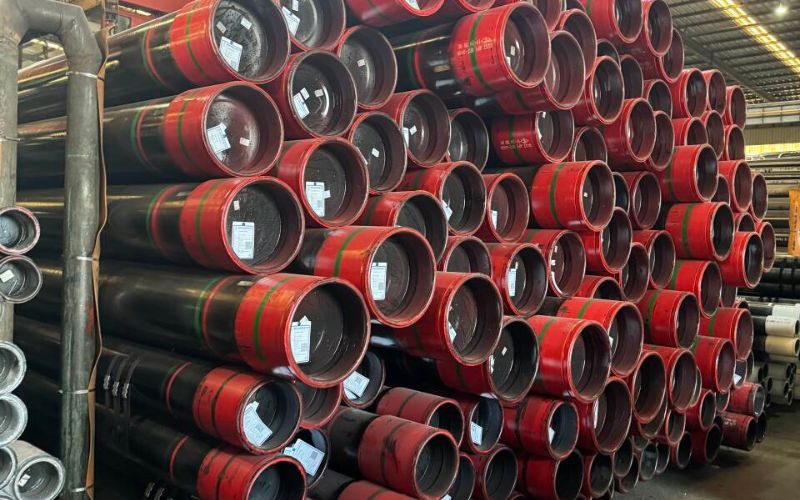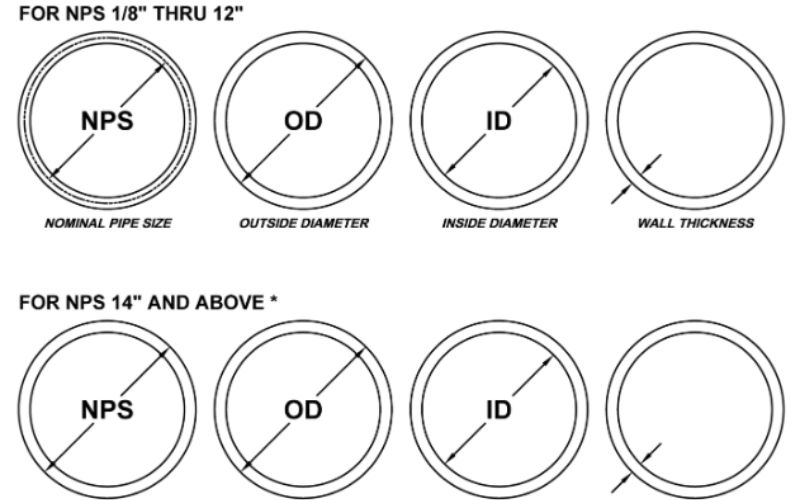When it comes to efficient, durable, and cost-effective piping systems for water supply, black polyethylene pipes have over time earned fame in domestic, agricultural, and industrial circles for the various applications it serves. A more exhaustive approach is taken when discussing the features, applications, and benefits of black well pipe; it thus becomes crucial information for homeowners, contractors, and engineers.
Introduction to Black Well Pipe

Black well pipe is a complex and flexible pipe that finds extensive use in water distribution, irrigation, and well installations; it is the most popular type in hardware stores. Constructed with high-quality materials, it will resist corrosion and withstand pressure to deliver services for an extended period in both residential and commercial settings. It wears well during installation and is easy to purchase; this means contractors and engineers will always consider it when specifying water systems that should function well and be reliable, particularly in relation to the reliability of the water supply.
What is Black Polyethylene Pipe?
Black polyethylene pipe, also known as black poly pipe, is a plastic piping material primarily composed of high-density polyethylene. It is well known to possess durability against cracking and handling varying pressures and temperatures. Black polyethylene pipe is mainly used for water transport, irrigation systems, and gas lines. Its main advantages include lightweight construction, resistance to corrosion, and ease of handling during installation.
History and Development of Black Well Pipes
The development history of pipes should begin from the advancement of polymer technology in the mid-20th century. High-density polyethylene (HDPE) was first introduced as an alternative material for piping systems that is both strong and economically viable, replacing traditional materials such as steel and copper. The corrosion resistance, flexibility, and low maintenance associated with these materials led to rapid acceptance for well piping. With the passage of time, manufacturing processes have improved to achieve greater consistency in performance, increased strength, and enhanced pressure resistance. This gave the final uplift that black well pipes enjoy as a dependable and mainstream solution in water and gas distribution systems.
Common Uses of Black Poly Pipe
Black poly pipe is commonly used in various applications due to its versatility and reliability:
- Water distribution in the home, agriculture, and industry
- Irrigation systems, including sprinkler setups and drip irrigation
- Natural gas distribution in low-pressure systems
- Conduit for protecting underground cables and wires
- DIY projects requiring flexible and durable piping solutions
Material and Specifications

Composition of Black Polyethylene Pipe
Primary Material
High-density polyethylene (HDPE) – a thermoplastic polymer of quite notable tensile strength, flexibility, and resistance to chemicals.
Additives
Carbon black (2-3% by weight) for UV resistance and environmental stress cracking protection
✓ Standards Compliance
- ✓ ASTM D3035 and ISO 4427 quality standards
- ✓ NSF/ANSI standards for potable water applications
- ✓ Non-toxic and safe for drinking water systems
Diameter Options for Black Well Pipes
💡 Selection Factors
These variables consider the requirements of flow rate, pressure within the system, length of piping, pump flow rate, and peak demand. In solid industrial practice, it is standard to turn to standards such as ASTM F714 and AWWA C906 for such optimal selection.
Pressure Ratings: Understanding 100 PSI and Beyond
Pressure ratings are a crucial aspect of piping and system design, influencing the safety and operational capability of an infrastructure. One hundred PSI (pounds per square inch) is considered the maximum pressure that a pipe or system component can safely withstand. Materials, wall thickness, and operating temperature are factors affecting the pressure rating of any element.
Pressure Rating Considerations
Material Grade
HDPE pipes may be rated for different pressures based on specific grades and manufacturing standards
Wall Thickness
Thicker walls can withstand higher pressures and thus provide greater system safety
Temperature Effects
Operating temperature directly impacts pressure capacity and system performance
Applications of Black Poly Pipe

Residential Water Supply Systems
Key Features for Residential Use
Agricultural Irrigation Systems
Modern Irrigation Technologies
🌱 Drip Irrigation
- ✓ Up to 95% water use efficiency
- ✓ Direct root zone delivery
- ✓ Minimal evaporation loss
💧 Sprinkler Systems
- ✓ 80-90% field area coverage
- ✓ Uniform water distribution
- ✓ Simulates natural rainfall
🔄 Center-Pivot Systems
- ✓ Hundreds of acres per unit
- ✓ Automated operation
- ✓ Precision nozzle control
🚀 Smart Technology Integration
- Soil moisture sensors for precise irrigation timing
- Weather-based controllers for automatic adjustment
- Satellite imaging for crop health monitoring
- 20-30% water consumption reduction potential
Industrial and Commercial Uses
Industrial Water Management Solutions
♻️ Water Recycling Systems
Water recycling in manufacturing processes refers to the reclamation of process water, resulting in a reduction of usage by almost 50% and notable cost savings, while maintaining a sustainable operation.
🏭 Cooling Systems
Industrial power plants in closed-cycle cooling systems circulate water within contained systems to avoid evaporation loss and reduce thermal pollution.
🏢 Smart Building Systems
Commercial buildings integrate IoT-enabled sensors for real-time usage monitoring, leak detection, and consumption optimization, resulting in a reduction of up to 30% in water waste.
Benefits of Using Black Well Pipes

Flexibility and Durability
Performance Advantages
🔧 Installation Benefits
- ✓ Easier installation in challenging terrains
- ✓ Reduced time and labor costs
- ✓ Adaptable to various site conditions
🛡️ Durability Features
- ✓ Resistance to corrosion and pressure changes
- ✓ 50+ year lifespan under normal conditions
- ✓ Minimal maintenance requirements
Cost-Effectiveness Compared to Other Pipe Types
Resistance to Corrosion and Chemicals
Chemical Resistance Properties
🧪 pH Range
pH 1 – pH 14
Handles highly acidic to highly alkaline conditions
⚗️ Chemical Types
Resistant to acids, alkalis, salts, and most organic/inorganic chemicals
🏭 Applications
Industrial wastewater, agricultural irrigation, and chemical transportation
✓ Key Advantages
- ✓ No rusting, pitting, or scaling
- ✓ Suitable for underground and marine installations
- ✓ Eliminates galvanic corrosion risks
- ✓ Reduced downtime and system failures
Potential Drawbacks of Black Polyethylene Pipe

UV Sensitivity and Longevity Issues
⚠️ UV Exposure Effects
- × Surface cracking over time
- × Reduced flexibility
- × Up to 50% tensile strength reduction
- × Diminished overall strength
✓ Protection Solutions
- ✓ Underground installation (ideal)
- ✓ UV-resistant coverings
- ✓ UV-stable polyethylene grades
- ✓ Regular maintenance inspections
Installation Challenges
Installation Considerations
🌡️ Thermal Expansion
A high thermal expansion coefficient necessitates the incorporation of expansion loops or allowances for movement to avoid joint instability with varying temperatures.
🏗️ Soil Conditions
Requires appropriate bedding and materials with good grading and compaction to prevent deformation, sags, or uneven load distribution.
💧 Hydrostatic Pressure
Buried pipes are pressure tested when near water tables and may require strengthening or anchoring mechanisms in areas prone to flooding.
📦 Handling Care
Need transportation and handling with care, especially to avoid scratches, dents, or exposure to sharp objects that might compromise structural integrity.
Comparisons with PEX and Other Pipe Materials
📊 Key Comparison Points
- PEX is best in the presence of hot water, but must be installed inside
- HDPE/PE is better outdoors in terms of resistance to weather and chemicals
- Copper costs more, material and installation-wise, than both polyethelene types
- Flexibility of PE/PEX reduces joint requirements and potential leak points
- All plastic options support sustainability through recyclability
Frequently Asked Questions (FAQs)
Conclusion
Black polyethylene pipe is characterized as a versatile solution for water management, being inexpensive, long-lasting, and retaining a few qualities while imparting others. In contrast with water well systems for homes, large-scale agricultural irrigation, and industrial processes, HDPE pipes have outstanding performance qualities that feature chemical resistance, flexibility, and lifetime. Of course, UV considerations and installation requirements have to be taken into account, but, in general, the benefits are enough to render black well pipe a good choice for modern infrastructure projects.
Whether you’re a homeowner planning a DIY project, a contractor seeking reliable materials, or an engineer designing complex systems, understanding the applications and benefits of black polyethylene pipe will help you make informed decisions that deliver long-term value and performance.
Reference Sources
- Kansas Geological Survey: Specifications for well construction, including the use of black PVC pipes for wells.
- University of California, Riverside: Analysis of pipe material interactions with water systems and health effects.
- Black Steel Pipe Supplier In China: Technical specifications and applications.
- Pipe (fluid conveyance): Industry standards and best practices for piping systems.




